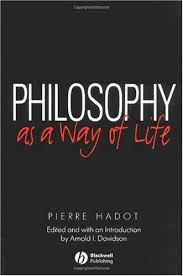 A couple of weeks ago, I wrote about neurophysiologist and Nobel Prize winner Ragnar Granit’s essay on the distinction between discovery and understanding as two separate modes of scientific work, which, he suggested, are differentially distributed throughout a scientist’s life-course — young researchers are impatient to discover something new, whereas older scientists are more interested in getting insight, he suggested.
A couple of weeks ago, I wrote about neurophysiologist and Nobel Prize winner Ragnar Granit’s essay on the distinction between discovery and understanding as two separate modes of scientific work, which, he suggested, are differentially distributed throughout a scientist’s life-course — young researchers are impatient to discover something new, whereas older scientists are more interested in getting insight, he suggested.
Even more interesting, in my view, is Granit’s thoughts about how researchers ‘keep track’ and ‘take care’ of their identity in order to achieve understanding and insight:
By “keeping track of one’s identity” I mean cultivating the talents of listening to the workings of one’s own mind, separating minor diversions from main lines of thought, and gratefully accepting what the secret process of automatic creation delivers.
In all creative work, including scientific work, Granit said, there is “need for a good deal of time for exercising the talent of listening to oneself”, and this self-listening is “often more profitable than listening to others”. Listening to oneself is at any rate more important than going to scientific seminars and conferences, which the ageing neurophysiologist thought was a pretty overrated activity:
There are so many of these meetings nowadays that people can keep on drifting round the world and soon be pumped dry of what is easier to empty than to refill.
Granit was aware of the possibility that some colleagues might regard his notion of ‘keeping track of one’s identity’ as idiosyncratic. But he also knew others, who, like himself, when looking back on their lives, might recognise “a main line of personal identity in the choice of their labors”. And maybe these colleagues would also agree with his own conviction that “if one can take care of one’s identity, it, in turn, will take care of one’s scientific development”.
Today, such ideas seem largely anathematic. Any graduate school programme will tell their students how important it is to engage with others, go to seminars, attend conferences, and read the literature systematically. Period. Few, if any, graduate school programmes would tell their students to listen to their own selves and take care of their scholarly identity.
The reason I find Granit’s idea of ‘keeping track’ and ‘taking care’ of oneself interesting is that it is pretty close to the ancient notion of ‘care of self’. I don’t know if Granit read Socrates or the Stoics or about the Epicureans. But his ideas are close to the notions of ‘spiritual excercises’ and ‘souci de soi’, which have been reintroduced into contemporary philosophy by Pierre Hadot, and later by Michel Foucault.
Such ideas — whether expressed by French philosophers or Finland-Swedish medical Nobel Prize winners — are definitely not on the agenda of present-day research governance agencies, who view researchers in more neo-liberal terms. It’s also a far cry away from the contemporary tradition of social studies of science, which shuns the idea of researchers taking their destiny in their own hands.

 Just want to spread the word that Nina Bjerglund Andersen, who’s working on a project on public health science communication through social media here at Medical Museion, has just started
Just want to spread the word that Nina Bjerglund Andersen, who’s working on a project on public health science communication through social media here at Medical Museion, has just started 
 Next year’s Universeum meeting (the 13th) will take place 14-16 June 2012 at the Norwegian University of Science and Technology in Trondheim. An announcement and call for papers will be sent out in November. See further:
Next year’s Universeum meeting (the 13th) will take place 14-16 June 2012 at the Norwegian University of Science and Technology in Trondheim. An announcement and call for papers will be sent out in November. See further: